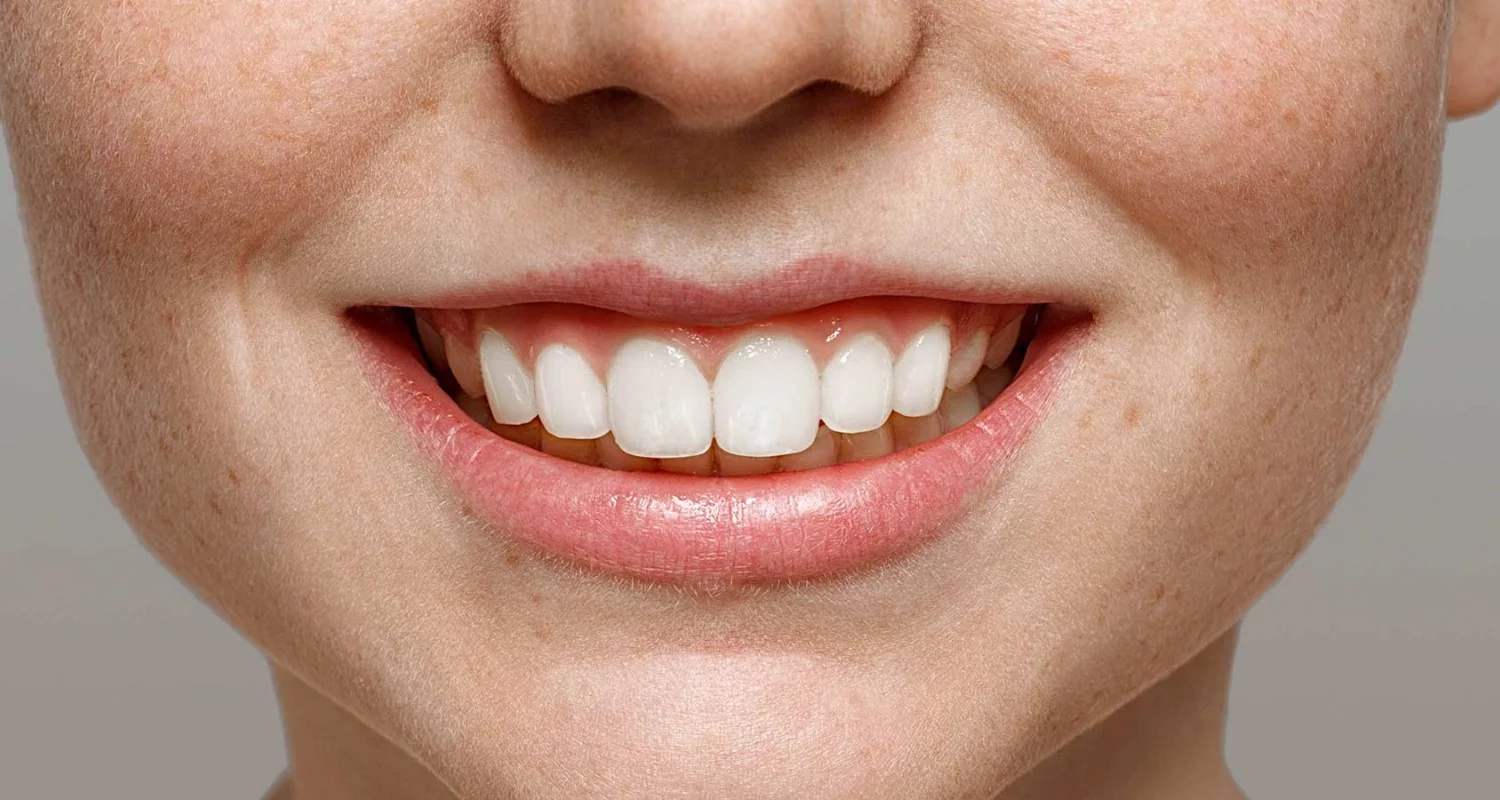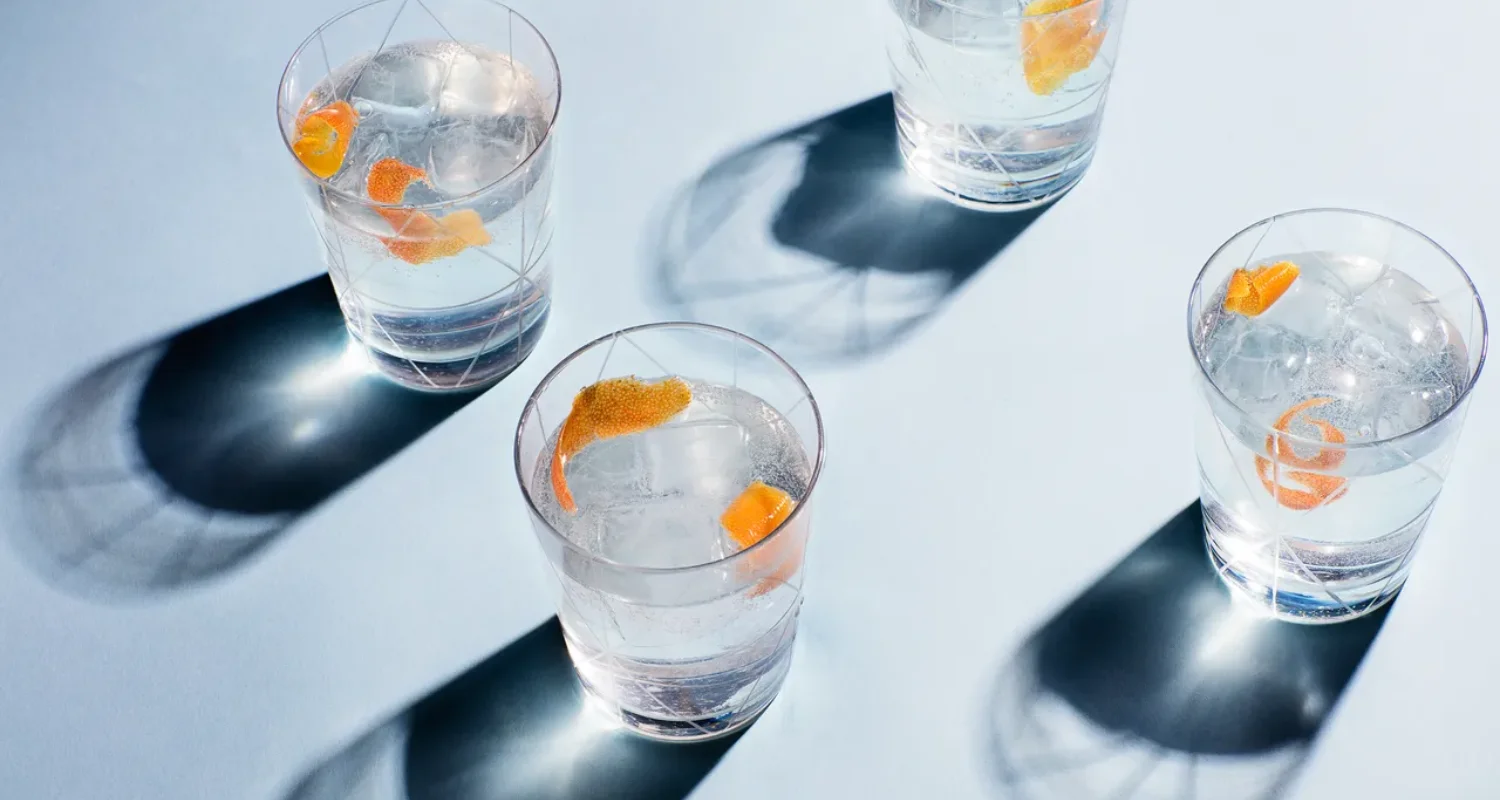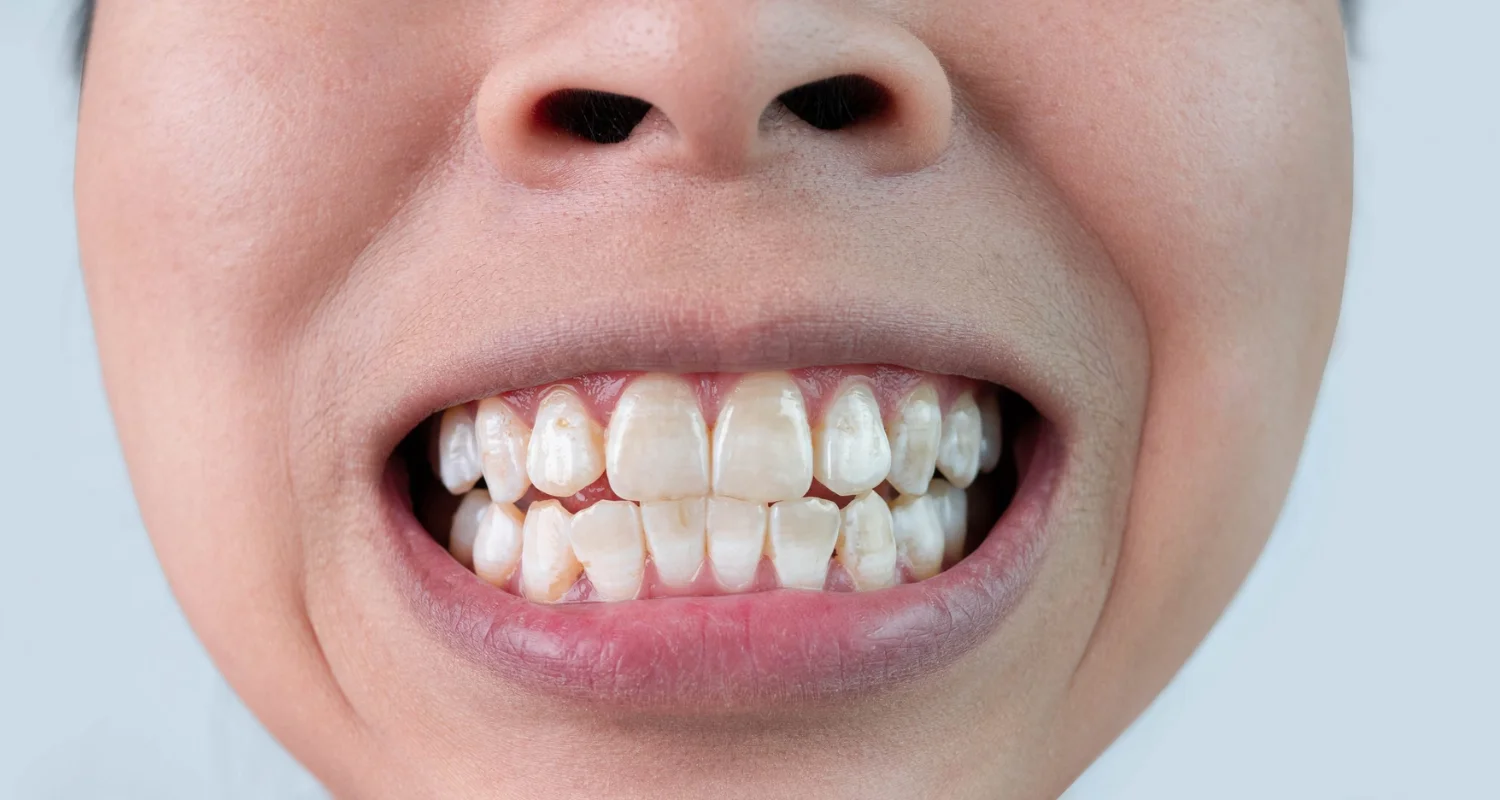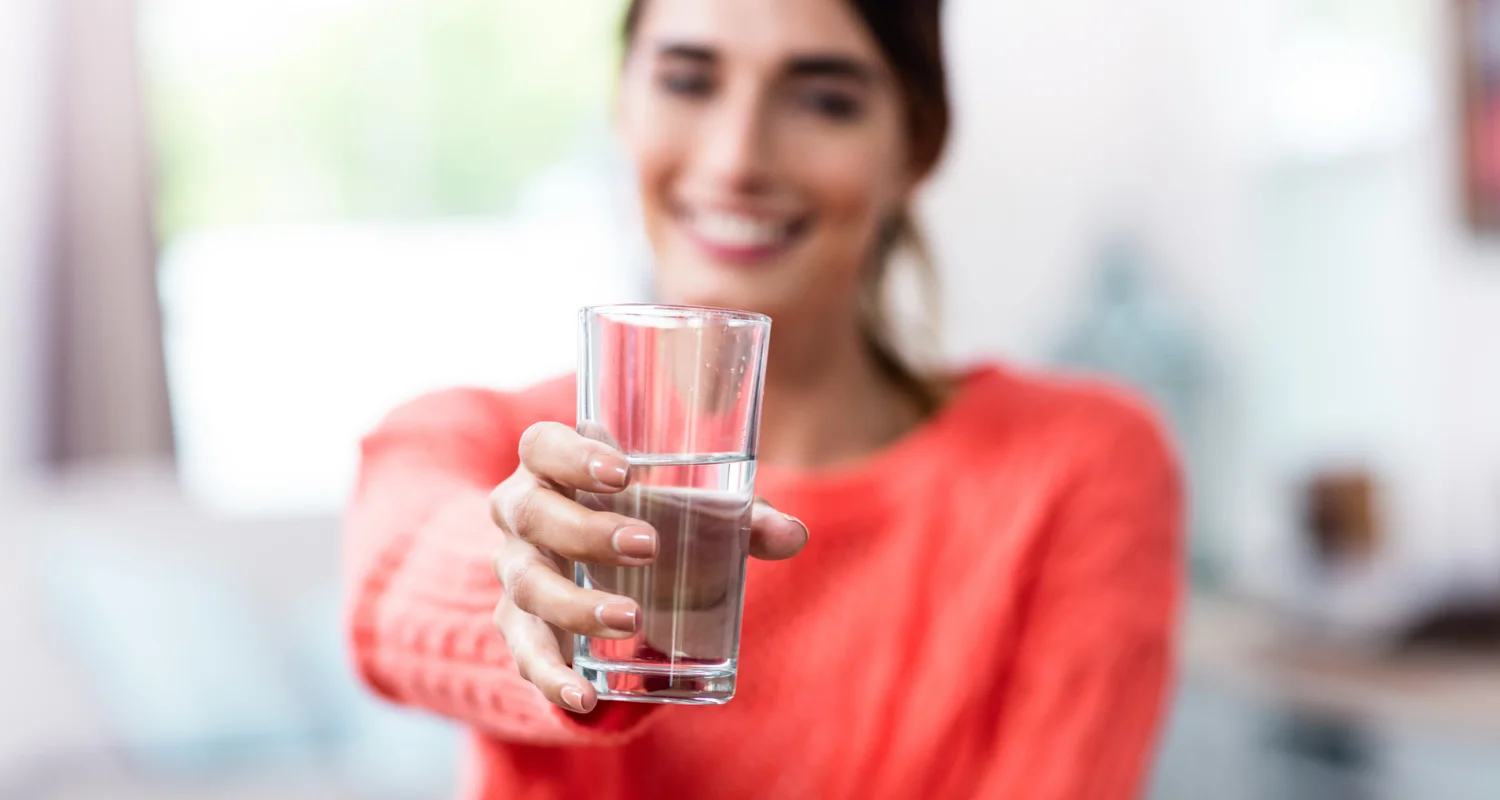Last Updated on: 19th September 2025, 12:32 pm
Sparkling water has become a go-to drink for many people looking for a healthier alternative to sodas and sugary juices. It has no calories, no sugar, and that crisp, fizzy sensation that makes it super refreshing. Sounds like the perfect guilt-free way to quench your thirst, right? But here’s the big question: is sparkling water bad for teeth?
We already know that sodas and sugary drinks can harm our enamel because they’re both acidic and loaded with sugar, which leads to cavities and sensitivity. But what about sparkling water? It doesn’t have sugar, but it is more acidic than regular water because of the carbon dioxide that creates those fun little bubbles. So, does that mean it can damage our teeth too? Is sparkling water bad for teeth?
In this article, we’ll dive into how carbonation affects your teeth and, most importantly, how you can enjoy your favorite fizzy drink without harming your smile. Let’s break it down!
Tooth enamel: your superhero shield
Think of enamel as your teeth’s personal superhero shield—it protects them from cavities, sensitivity, and everyday wear and tear. But just like any shield, it’s not indestructible. Over time, acidic drinks (like sodas, fruit juices, and yes, even sparkling water) can slowly weaken it, making teeth more vulnerable. Here’s what can happen:
● Enamel erosion: Your once-strong shield starts to wear down, making teeth look dull and feel weaker.
● Tooth sensitivity: Have you ever felt a sharp zing when eating ice cream or sipping hot coffee? That’s because thinning enamel exposes the sensitive layer underneath named dentina.
● Higher risk of cavities: With less enamel to protect them, your teeth become an easy target for bacteria, leading to cavities.
What is sparkling water?
Sparkling water is just regular water infused with carbon dioxide, giving it that fizzy, refreshing feel. But here’s the big question: Is sparkling water bad for your teeth?
When carbon dioxide dissolves in water, it creates carbonic acid, which gives sparkling water its slight tang. While much less acidic than soda or juice, frequent sipping can gradually weaken enamel, the protective layer on your teeth.
Not all sparkling waters are the same
Some are tooth-friendly, while others can be just as bad as soda. Here’s a quick guide:
● Plain sparkling water: Just water and carbon dioxide. Slightly acidic but generally safe in moderation.
● Mineral sparkling water: Contains extra minerals like calcium and magnesium, which may help neutralize some acidity.
● Flavored sparkling water: Often more acidic, especially citrus flavors like lemon or orange, which can speed up enamel erosion.
● Sweetened sparkling water: If it has sugar or artificial sweeteners, it’s basically soda in disguise—bad news for your teeth.
How acidic is sparkling water?
On the pH scale (where 7 is neutral, and lower numbers are more acidic):
● Regular water: pH 7. The safest for your teeth.
● Plain sparkling water: pH 5-6. Mildly acidic but not a major threat.
● Flavored sparkling water: pH 3-4. Getting close to soda levels.
● Soda and sugary juices: pH 2-3. A disaster for enamel.
If you drink plain sparkling water occasionally, you’re fine. But if you’re constantly sipping flavored or sweetened versions, your teeth are exposed to acidity all day, which can weaken enamel over time.
Is Sparkling Water Bad for Teeth? What problems are caused?
Sparkling water isn’t the biggest threat to your teeth, but drinking it too often, especially flavored or sweetened versions, can lead to some dental problems. Here’s what to watch out for:
● Enamel erosion: Even mild acidity can gradually wear down enamel, making teeth weaker over time. Imagine lightly sanding a surface every day, eventually, the damage becomes noticeable.
● Increased risk of cavities: If your sparkling water contains sugar or sweeteners, it feeds bacteria in your mouth, increasing the risk of tooth decay.
● Tooth sensitivity: When enamel thins, the sensitive layer underneath (dentin) is exposed, making it painful to eat or drink anything too hot, cold, or sweet.
● Staining: Weakened enamel absorbs stains more easily, so drinks like coffee, tea, and red wine can dull your smile faster.
What to do if you have dental issues from sparkling water?
If your teeth feel more sensitive or your enamel looks worn down, don’t panic; there are easy ways to protect your smile and keep your teeth strong.
1. See your dentist: Your dentist is your best ally when it comes to enamel protection. They can check your teeth and recommend solutions like:
-Fluoride treatments to strengthen enamel and reduce sensitivity.
-Dental sealants to shield teeth from further wear.
-Veneers or crowns for serious enamel loss, restoring and protecting damaged teeth.
For an expert opinion, you can ask for an online consultation.
2. Upgrade your daily routine: A few small changes can make a big difference:
-Use fluoride toothpaste to help rebuild and protect enamel.
-Rinse with fluoride mouthwash for extra defense against sensitivity.
-Brush twice a day and floss to keep plaque from weakening your teeth.
3. Brush smarter, not harder: Brushing the wrong way can make enamel wear worse. Try these tips:
-Use a soft-bristled toothbrush to avoid scrubbing enamel away. Here are some options.
-Brush gently in circular motions instead of using too much pressure.
-Wait at least 30 minutes after drinking acidic beverages (like sparkling water) before brushing to prevent enamel damage.
4. Eat for stronger teeth: Your diet plays a big role in enamel health. Keep these tips in mind:
-Cut back on acidic drinks like soda, citrus juices, and coffee.
-Eat more calcium-rich foods like dairy, almonds, and leafy greens to strengthen enamel.
-Drink plenty of water to rinse away acids and keep your mouth hydrated.
5. Don’t skip your dental checkups: Regular dental cleanings (every six months) help keep your teeth in top shape and catch any enamel issues early.
With a few smart habits and regular dental visits, you can protect your enamel, reduce sensitivity, and keep your smile strong for years to come!
Enjoy sparkling water without harming your teeth
Love the refreshing fizz of sparkling water? The good news is that you don’t have to give it up! While regular water is always the best choice for your teeth, sparkling water is still a much better option than sugary sodas or juices. The key is drinking it the right way to protect your enamel.
Smart tips to keep your smile safe
● Drink in moderation: Stick to 1-2 bottles a day to prevent constant acid exposure. Sipping all day long can wear down your enamel over time.
● Choose the right type:
-Go for plain, unsweetened sparkling water with no added flavors.
-Avoid flavored or citrus varieties (like lemon or orange). These are more acidic and can speed up enamel erosion.
-Watch out for hidden sugar: Some sparkling waters contain added sugar, making them just as harmful as soda. Always check the label before you sip!
● Use a straw: Drinking with a straw reduces the contact between the carbonation and your teeth, lowering the risk of enamel damage.
● Drink it with meals: Eating while drinking increases saliva production, which helps neutralize acids and protect enamel. Avoid sipping sparkling water throughout the day—stick to mealtimes instead.
● Rinse with regular water afterward: This helps wash away any lingering acids and restores your mouth’s natural pH.
● Wait before brushing: Brushing immediately after drinking sparkling water can actually cause more harm. Carbonation temporarily softens enamel, so wait at least 30-40 minutes before brushing to avoid damaging your teeth.
● Skip it before bed: Saliva production slows down at night, meaning acids can stay on your teeth longer. If you need to hydrate before bed, stick to plain water.
So, is sparkling water bad for teeth? Not necessarily. But drinking it in excess, especially flavored or sweetened varieties, can gradually weaken enamel. While its acidity isn’t as harmful as soda, frequent exposure can contribute to enamel erosion, sensitivity, and cavities over time. That said, when compared to sugary drinks, plain sparkling water is still a far better choice for your oral health.
The key is balance. You don’t have to give up your favorite bubbly drink; just be mindful of how you consume it. Opt for plain, unsweetened versions, use a straw to limit contact with your teeth, and rinse with water afterward to minimize potential damage. With these simple habits, you can enjoy sparkling water while keeping your smile strong and healthy!
Frequently Asked Questions
Can kids drink sparkling water?
Yes, but in moderation. Plain sparkling water is fine for kids, but flavored or sugary versions should be avoided, as their enamel is still developing and more prone to damage. Encourage kids to drink still water as their main source of hydration.
Why does sparkling water sometimes taste salty?
Some brands of sparkling water contain added minerals like sodium, calcium, or magnesium to enhance the taste. If you prefer a cleaner taste, look for brands that offer plain carbonated water with no added minerals.
Can drinking sparkling water replace regular water?
It can be part of your daily hydration, but it shouldn’t completely replace still water. Regular water has a neutral pH, helps flush out bacteria, and is the safest option for long-term dental health. It’s best to balance both!
Why does sparkling water sometimes make my teeth feel weird?
Some people notice a slight tingling or rough feeling on their teeth after drinking sparkling water. This is because of the mild acidity temporarily softening enamel. It’s temporary, but if you notice this often, try drinking less frequently or rinsing with water afterward.
Will drinking sparkling water affect my teeth whitening results?
It shouldn’t, but weakened enamel is more prone to staining. If you’ve had your teeth whitened, avoid flavored sparkling water, coffee, tea, or wine immediately after your treatment to keep your smile bright.
Share
References
1. Cleveland Clinic Professionals. (2024, October 14). Is Sparkling Water Good for You? Cleveland Clinic. https://health.clevelandclinic.org/is-sparkling-water-healthy
2. Inchingolo, A. M., Malcangi, G., Ferrante, L., Del Vecchio, G., Viapiano, F., Mancini, A., Inchingolo, F., Inchingolo, A. D., Di Venere, D., Dipalma, G., & Patano, A. (2023). Damage from Carbonated Soft Drinks on Enamel: A Systematic Review. Nutrients, 15(7), 1785. https://doi.org/10.3390/nu15071785
3. McVean, A. (2017, November 13). Is Carbonated Water Bad for Your Teeth?. Office For Science And Society. https://www.mcgill.ca/oss/article/health-and-nutrition-quackery/carbonated-water-bad-your-teeth
4. Mouth healthy. (s. f.). The Truth about Sparkling Water and Your Teeth. MouthHealthy – Oral Health Information from the ADA. https://www.mouthhealthy.org/nutrition/the-truth-about-sparkling-water-and-your-teeth
5. Ryu, H., Kim, Y., Heo, S., & Kim, S. (2017). Effect of carbonated water manufactured by a soda carbonator on etched or sealed enamel. The Korean Journal Of Orthodontics, 48(1), 48. https://doi.org/10.4041/kjod.2018.48.1.48
-
Dr. Yeidy Carolina Mesa [Author]
DDS Yeidy Carolina Mesa Passionate Dentist | Advocate for Accessible Oral Health Education Graduating from Universidad CES in 2022, I am a dedicated general dentist with a lifelong passion for helping others and making a meaningful impact in the world. My journey into dentistry began at the age of 7, inspired by my own experience with braces and overcoming a fear of the dentist. This personal journey shaped my mission to help patients conquer their own dental anxieties and embrace a healthier,...
View all posts
-
Nayibe Cubillos M. [Medical Reviewer]
Pharmaceutical Chemestry |Pharmaceutical Process Management | Pharmaceutical Care | Pharmaceutical Services Audit | Pharmaceutical Services Process Consulting | Content Project Manager | SEO Knowledge | Content Writer | Leadership | Scrum Master
View all posts
A healthcare writer with a solid background in pharmaceutical chemistry and a thorough understanding of Colombian regulatory processes and comprehensive sector management, she has significant experience coordinating and leading multidisciplina...




















